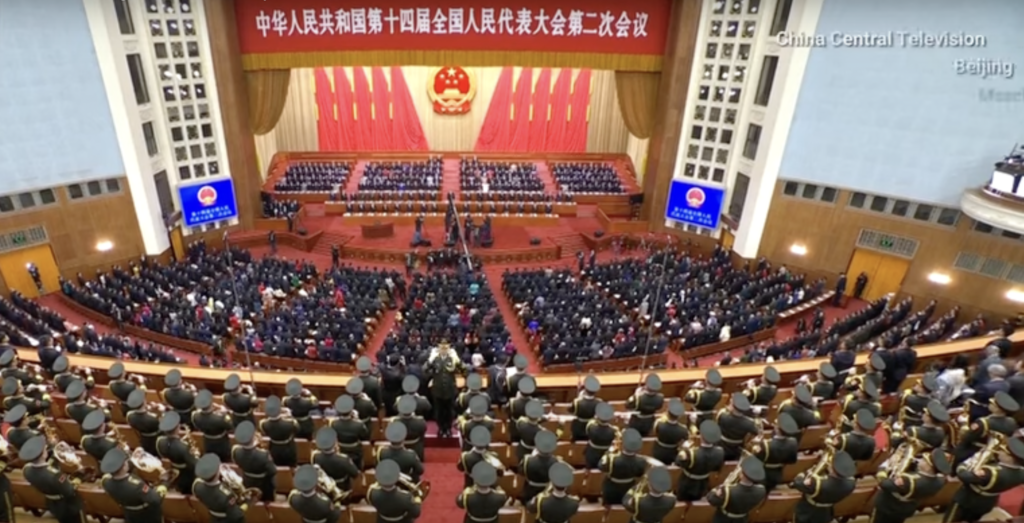SOME COMMENTATORS are saying that China’s annual parliamentary meeting is undramatic this year. This is because they haven’t seen announcements about injections of public money that some economists were hoping for. And growth targets were set modestly, at “around 5%” for GDP growth and 3% for the annual budget deficit.
The BBC’s sour correspondent dismissed the event as a “rubber-stamp parliament” which was merely “political theatre”.

But people like that are clearly missing the point—and perhaps even showing how little they understand China. While budgets in some countries focus on headline-grabbing “sweeteners” and “handouts” to special interest groups, the Chinese leadership works much less ostentatiously, quietly fine-tuning systems and making restructuring operations in a low-key way.
And in this case, if one listened carefully, there was a clear focus on giving a boost to building up the country’s science, technology and innovation sectors.
The lack of surprises doesn’t mean that nothing is happening. It just means that one has to listen carefully and think about what has been said.

So, for example, Premier Li Qiang’s annual work report several times mentioned that “negative external factors” will be a challenge in the year to come. It doesn’t take much thought to realize that the leadership is well aware that economic and other attacks from across the Pacific are likely to continue.
There were also references to a higher job creation target, which indicates that the leadership is well aware that there is a high level of youth unemployment in the country, and the sluggish economy is not generating enough jobs by itself.

So is the economy in deep trouble, as some western commentators say? The view in China is very different. Yes, the economy is running slow for various reasons, but this is not because of a structural problem that will cause a collapse. What’s happening is that the country’s manufacturing sector is going through a period of evolution, moving up the value chain.
China is moving up the development ladder. Instead of making cheap goods, it is now making complex, precision items and paying higher salaries – the country’s astonishing success in creating the world’s biggest electric vehicle industry out of nothing is a good example.
This type of transition is happening faster in China and at a greater scale than the world has ever seen. So naturally there will be difficult adjustments to make, including economic struggles and pockets of unemployment.

The event is known as the lianghui in Chinese, which means “Two Sessions”. Once a year, both the main political bodies of the country gather. One is the National People’s Congress and the other is the National Committee of the Chinese People’s Political Consultative Conference. By putting them back to back, the meetings can cover a wide range of fields of interest, including the economy, trade, the environment, the military, and so on.
Fridayeveryday will feature more reports about the Two Sessions over the coming days, including on-the-spot news from Hong Kong delegate Herman Hu, reporting from Beijing.
Images for this report come from China Central TV and Xinhua.
